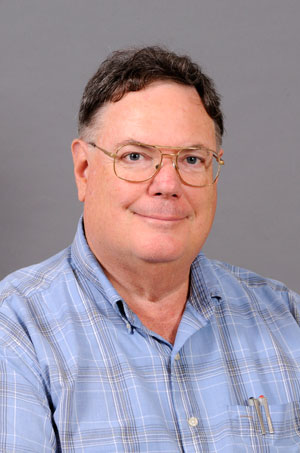Faculty Profile
Gene Wingert
Visiting Instructor in Biology (2007)Contact Information
Rector North Room 1310
717-254-8939
Education
- B.A., Shippensburg University, 1967
- M.Ed., 1972
2023-2024 Academic Year
Fall 2023
BIOL 201 Natural Hist of Cumb Valley
The Cumberland Valley is just a segment of the Ridge and Valley Appalachians. The Great valley runs from Southeastern New York through northwestern New Jersey, westward into Pennsylvania through the Lehigh Valley and southward into Maryland, West Virginia, Virginia, Kentucky, Tennessee, Georgia and Alabama. The Ridge and Valley form a broad arc between the Blue Ridge Mountains and the Appalachian Plateau. The unique geology of this valley running north south has produced an interesting blending of organisms of both southern and northern origins. The Cumberland Valley has been occupied by humans for the last 10,000 years. The impact of past and present populations has had significant impacts on the ecology of the Valley. If we are to sustainable manage the Cumberland Valley for our descendants, we must understand the valley's ecology. This course will explore the geology of the Cumberland Valley portion of the Great Valley and how geology and climate determines the various ecologic communities that can be found in this region. Labs will be field oriented with hands on experience with the various flora and fauna of the region.
BIOL 560 Stu/Faculty Collaborative Rsch
Spring 2024
BIOL 131 Intro to Org, Pop & Ecosyst
This introductory course spans levels of biological organization from basic multicellular microanatomy to organismal physiology and ecology, as understood through the lens of evolution. Course content will be focused around a specific theme determined by the instructor, and will include evolutionary principles of variation, selection, competition and cooperation, and how their operation at different levels of organization accounts for form and function of organisms, communities, and ecosystems. We will investigate homeostasis, reproduction and development as physiological processes that take place within organisms, and as ecological processes that interact with the environment and generate diversity of form over evolutionary time. Finally we will take stock of the existing forms and levels of biological organization and ask how their relationships establish the biosphere in which we live. Three hours classroom and three hours laboratory a week. This is one of two courses required of all Biology majors before entering the upper level. It is complementary to BIOL 132 – Introduction to Molecules, Genes, and Cells, and the courses may be taken in either order.
BIOL 560 Stu/Faculty Collaborative Rsch
ENST 560 Stu/Faculty Collaborative Rsch
